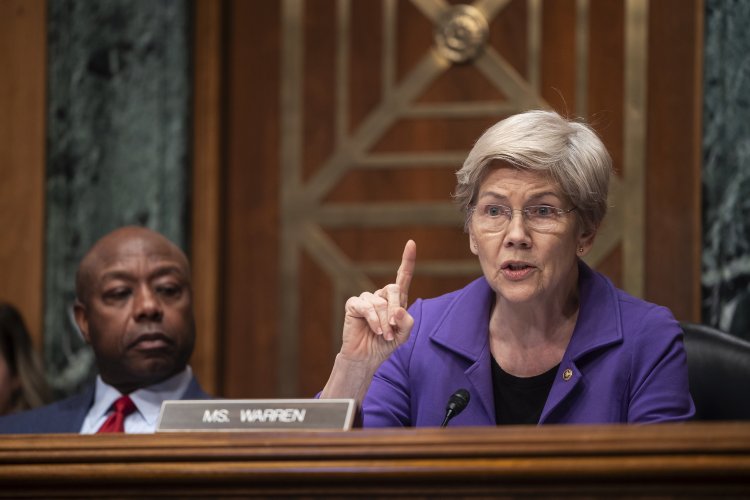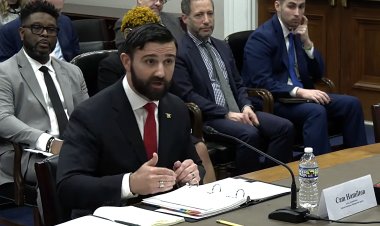Reasons the Senate Crypto Bill Failed
The crypto industry's positive momentum in Washington has encountered a significant obstacle in the Senate.

While there is still a potential route for the crypto bill to move forward, the industry's attempts to sway lawmakers across the political spectrum with substantial financial contributions are facing increasing partisanship, particularly as Democrats seek new ways to oppose President Donald Trump.
“I'm very disappointed,” commented Sen. Cynthia Lummis, a Republican from Wyoming often referred to as the Senate’s “crypto queen.” She played a crucial role in negotiations aimed at winning over Democratic skeptics ahead of the vote.
This setback underscores the complexities of bipartisan policymaking during the Trump era. Unlike their previous successful push to get a tax-cut mega bill, Republicans must now secure Democratic support to advance crypto legislation in the Senate, facing a growing divide within the party.
In recent years, many Democrats, including Senate Minority Leader Chuck Schumer, have become more receptive to cryptocurrency, looking to capitalize on campaign contributions from the industry. This raised expectations that crypto could be one area where bipartisanship might flourish. However, progressive figures like Sen. Elizabeth Warren have remained strong opponents of Republican-led crypto initiatives, with skepticism regarding the Trump family's connections to the crypto realm influencing legislative efforts.
A week before the vote, Schumer discreetly urged his fellow Democrats during a caucus meeting to withhold support for the bill to amplify their bargaining power for further amendments. Concerns were voiced by senators, including Warren, regarding the implications of passing the crypto legislation amid Trump’s growing financial ties to the sector.
Trump’s sons launched a crypto initiative last year that issues a stablecoin pegged to the dollar, which could directly gain from the proposed legislation. The bill, spearheaded by Sen. Bill Hagerty, aimed to establish the first U.S. regulatory framework for stablecoins, a long-standing goal for domestic issuers seeking mainstream recognition. In the days leading up to his inauguration, Trump even introduced a memecoin and hosted top investors for a White House event.
“The Trump crypto coin scam is the biggest corruption in the history of the White House,” stated Sen. Chris Murphy. “If we’re going to be in the business of regulating the crypto industry, we should be prioritizing cleaning up this corruption.”
Democrats are divided on how much the president's crypto ventures should influence legislation considerations. Murphy and others want provisions that would prevent Trump from issuing crypto tokens. Conversely, crypto-friendly Democrats argue that concerns over conflicts of interest shouldn't impede digital asset regulations, emphasizing that their main issue with the stablecoin bill was its details rather than Trump’s involvement.
“A lot of that’s been kind of, I think, a distraction more than anything else,” said Sen. Ruben Gallego, who had backed an earlier version of the bill in committee and had been part of the unsuccessful negotiations leading to the vote. “If we don’t pass any stablecoin legislation, he’s still going to do everything he’s going to do right now. The most important thing we can do is get a strong, strong bill.”
Despite the challenges presented by Trump and the bill's defeat on Thursday, the stablecoin legislation is not completely abandoned. Senate Majority Leader John Thune opposed the bill but filed a motion for reconsideration, allowing for its return to the floor. The group of Democrats, including Gallego, who engaged in pre-vote negotiations with Republicans express a commitment to revisiting the issue.
Gallego had advocated for postponing the vote on the grounds that Democrats needed more time to secure a consensus, but Republicans rebuffed this suggestion. GOP lawmakers accused their Democratic counterparts of prioritizing political strategy over the possibility of a bipartisan success.
“It was a vote to stop President Trump from having a victory in the digital asset space. It was a vote against common sense — that simple,” Senate Banking Chair Tim Scott remarked in his speech following the vote. “Trump Derangement Syndrome has once again hijacked responsible governance in this chamber.”
Campaign politics are also influencing how Democrats approach the crypto debate, as substantial contributions from the crypto industry loom large for vulnerable Senate Democrats who oppose industry-backed initiatives. A pro-crypto super PAC that invested over $100 million in the 2024 elections has replenished its funds, now boasting over $110 million ahead of the 2026 campaigns.
“I always worry about the influence of money in Washington, but the crypto industry seems to think that they have a lot of power right now because of the contributions that they’ve made,” Warren stated to reporters in the lead-up to the vote.
The super PAC funding serves as both an incentive and a threat for legislators: those aligned with the industry’s goals may benefit, while those obstructing progress face potential repercussions. The pro-crypto PAC, known as Fairshake, previously invested $40 million during the 2024 elections to unseat a prominent industry critic and supported allied Democrats.
In light of the vote’s outcome, Senate Republicans, led by Scott, expressed that crypto executives should reconsider their campaign contributions to Democrats. “Anyone backing Senate Democrats in hopes of crypto progress is ignoring reality,” said Jennifer DeCasper, executive director of the National Republican Senatorial Committee.
Moving forward, advocates from both parties must find ways to revive negotiations. Beyond the stablecoin bill at hand, Republicans aim to advance comprehensive cryptocurrency legislation by August, which would allocate oversight responsibilities among market regulators.
Some supporters now question whether a broader regulatory measure will encounter political viability, given its anticipated complexity and contention. Nonetheless, others see potential in the engagement demonstrated by lawmakers from both sides during recent negotiations.
“I don’t think that this spells doom and gloom,” remarked Kara Calvert, a chief U.S. lobbyist at Coinbase, the nation's largest crypto exchange. “This is absolutely the kind of engagement that you need to see to get it done, and get it done right.”
Ramin Sohrabi for TROIB News
Discover more Science and Technology news updates in TROIB Sci-Tech












